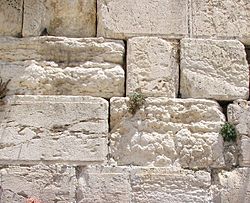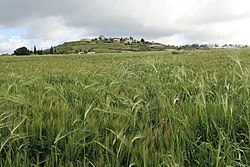User:Davidbena

| Wikipedia:Babel | ||||||
|---|---|---|---|---|---|---|
| ||||||
| Search user languages |


Wikipedia's Online Encyclopedia is unique in that it enables editors from all over the world to contribute in the systematic outline and documentation of important subject matters, by virtue of their special access to academic sources, and to make this information available to all persons around the globe. What was previously available to a select few in select universities and libraries, or to a select few based on their own language skills, can now be accessed by all through the medium of a computer with a link to Wikipedia. This service is unique in our generation, and its importance cannot be overstressed. Wikipedia has revolutionised access to information. There is no single library with all the books in the world, but this venue (Wikipedia) enables us to treat on subjects contained in all books found in libraries scattered throughout the entire world, thanks largely to its wide-range of contributors. Knowledge has now become widespread.
A scholar once wrote: "Literature... depends heavily on credibility. If a text has passed through the professional hands of the author, editor, publisher, and bookseller, the readers will assume with good reason that the editorial frame and, in particular, the alleged authorship is accurate." - D. Trobisch. This does not negate, however, how that we, as editors, ought to be truthful in our reporting. Maimonides, the famous Jewish Rabbi and philosopher, once wrote in his Epistle to Yemen (ch. xiv): “Do not consider a statement true because you find it in a book, for the prevaricator is as little restrained with his pen as with his tongue. For the untutored and uninstructed are convinced of the veracity of a statement by the mere fact that it is written; nevertheless its accuracy must be demonstrated in another manner.”
One of my favorite pastimes is writing. The professional skills required for good writing are in building a good vocabulary, or, as some may call it, becoming a "wordsmith." Reading many books, and becoming acquainted with the styles of other authors definitely helps. Hopefully, my modest contribution here, on Wikipedia, will be a worthwhile one and will bring some sense of satisfaction to our readers.
Another thing to remember here is that "popular opinions are not always the accurate opinion," and not everything that is "mainstream" is scientifically supported. Therefore, we must sometimes take things with a grain of salt. These opinions, notwithstanding, may still reflect the current views of many in our pluralistic world, and, if I might quote from an Administrator: "Every conflict in the world is a conflict on Wikipedia." This makes our work here all the more difficult, considering the range of diverse opinions and, especially, when different "ideological forces" are at play and neither side is willing to yield.
I will also remind our readers here that the age of a book's publication makes little or no difference, so long as the information provided is accurate. The key here is accuracy. Albert Einstein's Theory of relativity is still applicable today. In 2007, Einstein's theory of relativity was further substantiated by an experiment conducted by Chinese-born Zhang and German physicists, with the discovery of topological insulator. Some of Sir Isaac Newton's laws of gravity and of physics are still applicable today, such as Newton's third law, "For every action, there is an equal and opposite reaction." Many of the works on medicine, written by mediaeval authors, such as by Maimonides or by Avicenna, or by classical writers long before them, such as Galen (Aelius Galenus), or Dioscorides and Theophrastus, are still applicable unto us today. Some of their ancient remedies are still being used today in compounded medicines. So, too, many of the philosophical works, such as those written by Descartes and Cordemoy, are still applicable today. Do not be misled by a book's antiquity and think to say that its account must be outdated and obsolete, since this is not always the case. Friedrich Hayek once described what he called “the fatal conceit,” that somehow we know better than the wisdom of the ages.
In many of my articles published here on Wikipedia, I often make use of Hebrew quotes taken from reliable Hebrew sources not readily available to our English readers, but which I am careful to add thereto an English translation of the Hebrew text, as well as expanded explanatory notes in the references cited. Two articles created by me, Erich Brauer and Beit She'arim (Roman-era Jewish village), appear under the names of different users because of an earlier "Redirect" under those same titles, and which I was unaware of at the time. I have also helped to improve articles started by others, all for the good of this worthy project. A sampling of such articles are as follows:
- Adullam
- Azekah
- Bayt Nattif
- City of David (archaeological site)
- Copper Scroll
- Dina d'malkhuta dina
- Eduard Glaser
- Evil inclination
- Generations of Noah
- Gezer
- Hebraization of Palestinian place names
- Horvat 'Ethri
- Kermes (dye)
- Kil'ayim (prohibition)
- Megillat Taanit
- Moringa peregrina
- Niddah
- Operation Ha-Har
- Ottoman Land Code of 1858
- Qadad
- Saadia Gaon
- Seder Olam Rabbah
- Tabun oven
- Targum Onkelos
- Tell ej-Judeideh
- Tithes in Judaism
- Usucaption
- Yemenite Hebrew
- Yemenite Jews
- Yemenite silversmithing, among others.
My WP work
[edit]My contributions (pages created) here on Wikipedia chiefly involve content related to the following areas, among others:
- Historical geography (of the Land of Israel)
- (Selamin, Bersabe, Tarichaea, Bethmaus, Jamnith, Garis (Galilee), Rebbo, Chezib of Judah, Lavnin, Khirbet et-Tibbaneh, Kefar Shihlayim, Beit She'arim (Roman-era Jewish village), Gerasa (Judaea), Tur Shimon, Khirbet Jurish, Ladder of Tyre, Horvat Maon (Hebron Hills), Umm er Rus, WP:Israel/Books, etc.)
- Yemenite Jewry
- Ancient Jewish history and customs
- Jewish concepts
- Flora of Israel
- Archaeological discoveries
- Explorers of Near Eastern cultures and society
- Classical works
- Food and Material culture
- Rabbinic scholars
- Hebrew Bibles
- (Damascus Pentateuch, Al-Ousta Codex, Damascus Crown, etc.)
- Hebrew-language academic journals
- (Zion (journal); Tarbiz, Sefunot (journal), Sinai (journal), etc.)
- Miscellaneous
"No one is so poor as he who lacks knowledge!" - Babylonian Talmud, Nedarim 41a




|
|
|
|
Miscellaneous
[edit]- Templates • Template help
- Article tags: {{abbreviations}} • {{cleanup}} • {{external links}} • {{No footnotes}} • {{Citations missing}} • {{Citation needed}} • {{Cleanup}} • {{copy edit}} • {{copypaste}} • {{Confusing}} • {{Inappropriate tone}} • {{incoherent}} • {{multiple issues}} • {{Notability}} • {{Not verified}} • {{original research}} • {{overlinked}} • {{peacock}} • {{POV}} • {{primary sources}} • {{puffery}} • {{refimprove}} • {{tone}} • {{Unreferenced}} • {{inline citations}} • {{unreferenced}} • {{verify}} • {{weasel}} • {{Wikify}}
- Section tags: {{Disputed-section}} • {{POV-section}} • {{copy edit-section}} • {{expand section}} • {{fictionrefs}} • {{off-topic}} • {{in popular culture}} • {{ref improve section}} • {{unreferenced section}} • {{trivia}}
- Inline tags: Category:Inline citation and verifiability dispute templates • {{citation needed}} • {{clarify}} • {{failed verification}} • {{or}} • {{request quotation}} • {{syn}} • {{verify credibility}} • {{who}} • {{whom?}}
Useful links
|
|---|
    |
Things that every Wikipedian should know about
[edit]- Automatic reference generator for Google Books.
- Wikipedia Reference Search - a Google search that only returns sites vetted by Wikipedians.
- Wikipedia:Citing sources
- Interwiki linking



International Travels
[edit]| Spent years: | |
| Months to Days: | |
| Hours: | |
| To go some day: | |
| Idea and layout borrowed from User:Guettarda who borrowed it from User:Coolcat (who calls himself User:とある白い猫 these days) |
Wiki Tools
[edit]<ref name="">{{cite news
| last =
| first =
| coauthors =
| title =
| work =
| pages =
| language =
| publisher =
| date =
| url =
| accessdate = }}</ref>

<ref name="">{{cite web
| last =
| first =
| authorlink =
| coauthors =
| title =
| work =
| publisher =
| date =
| url =
| format =
| doi =
| accessdate = }}</ref>
<ref name="">{{cite book
| last =
| first =
| authorlink =
| coauthors =
| title =
| publisher =
| date =
| location =
| pages =
| url =
| doi =
| id = }}</ref>
- User en-N
- User he-N
- User tmr
- User tmr-2
- User ar-1
- User grc
- User grc-1
- Wikipedians in Israel
- Wikipedians by alma mater: Hebrew University of Jerusalem
- Wikipedian Yeshiva students
- Wikipedians interested in Judaism
- Wikipedians interested in Israel
- WikiProject Israel participants
- Wikipedia autopatrollers
- Wikipedians who have access to JSTOR
- Wikipedians who have access to Loeb Classical Library
- Wikipedians who have access to Oxford University Press
- Wikipedia good article contributors
- Translators he-en
- Wikipedians interested in history
- Wikipedians interested in ancient Israel
- Wikipedians interested in the Levant
- Wikipedians interested in theism
- Wikipedians interested in literature
- Israeli Wikipedians
- Jewish Wikipedians
- Humanist Wikipedians




